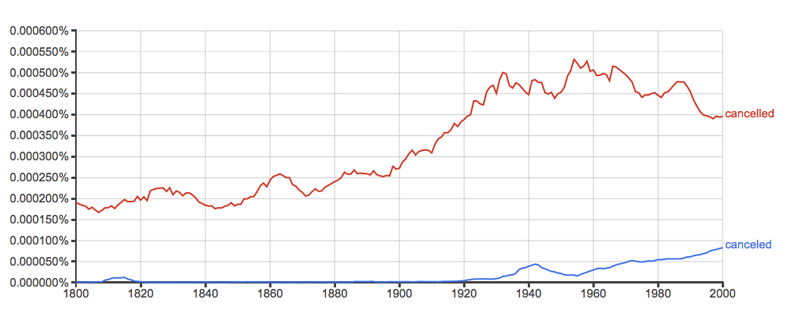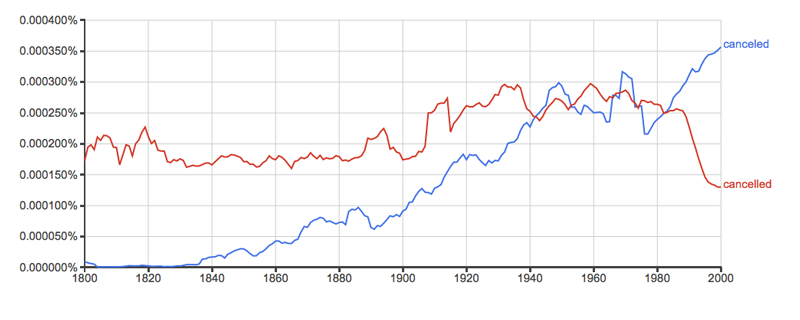There’s no doubt that those of us who live in a snowy area are familiar with these two words. Each and every year, winter snowstorms across the country disrupt travelers’ schedules and school operations by canceling flights and classes—or is it cancelling?
The two words canceled and cancelled can cause some confusion for those writers not exactly sure when to use which one. Are they just variations of the same word? Do they have different meanings? Do they have different functions in a sentence?
In today’s post I will address all of these questions so that you will never second-guess yourself when writing these words again. So what is the difference between canceled and cancelled?
What is the Difference Between Canceled and Cancelled?
 Canceled and cancelled are both past tenses of the verb cancel. To cancel is to annul or invalidate; to decide or announce that planned or scheduled event will not take place. For example,
Canceled and cancelled are both past tenses of the verb cancel. To cancel is to annul or invalidate; to decide or announce that planned or scheduled event will not take place. For example,
- Due to the couple’s breakup, the wedding was canceled.
- Are you cancelling our dinner plans?
- My credit card was canceled from lack of payment.
You’re probably still asking yourself, “Okay, when do I decide which one to use?”
The answer to that question is that the difference between them is entirely dialectal. There is no demonstrable difference of sense or function between them, meaning both words can be used interchangeably.
When to Use Canceled
Does canceled have one l? Even though the only thing separating these two words is a dialectical difference, it is still important to keep your audience in mind when picking which word to use and when.
Canceled (with one “L”) is the preferred choice in American English. We can thank Noah Webster for this. He is usually credited with the creation of American spellings that have fewer letters than the British counterparts. Color (colour), flavor (flavour), and labor (labour) are a few examples of this. Canceled is the recommended spelling in Webster’s 1898 dictionary. Likewise, The AP Stylebook prefers the use of cancel, canceled, and canceling, but it favors cancellation over cancelation.
 Taking this into consideration, you should only use one “L” if you are writing to an American audience with the possible exception of cancellation.
Taking this into consideration, you should only use one “L” if you are writing to an American audience with the possible exception of cancellation.
When to Use Cancelled
Does cancelled have two ll’s? Cancelled (with two “L’s”) is the preferred choice in British English and is used much more frequently than canceled. The below chart shows the use of canceled and cancelled (as a percentage of all words used) in British English books, journals, and magazines from 1800 to 2000.

Similarly, the below chart shows the frequency of the two words in American English, with canceled being the preferred option, but, interestingly enough, it only became the dominate word within the last 30-40 years, as the two began to diverge around 1980.

Trick to Remember the Difference
One simple way to keep track of these two words is that the shorter spelling is American. If you can keep in mind that, generally speaking, British English favors (favours) the longer spelling of certain words, you will be able to remember the difference between these words.
Summary
Is it cancelled or cancelled? So, which word is which? Here’s what you need to know.
Although either cancelled or canceled can be used correctly in the same sentence, it’s important to keep your audience in mind when using these words.
- Canceled is the preferred American word choice.
- Cancelled is the preferred British word choice.
Contents
